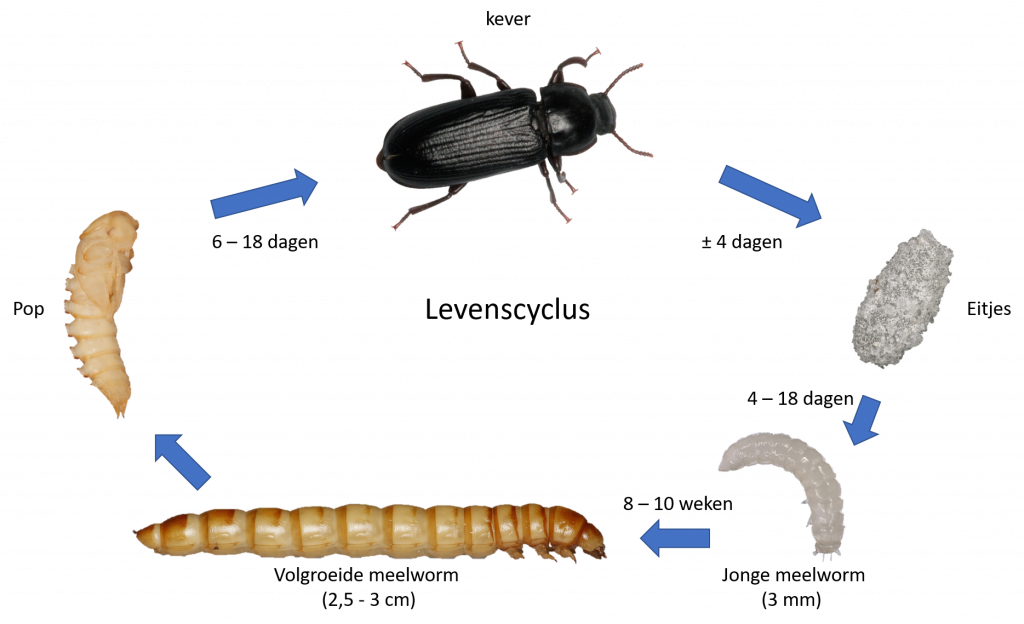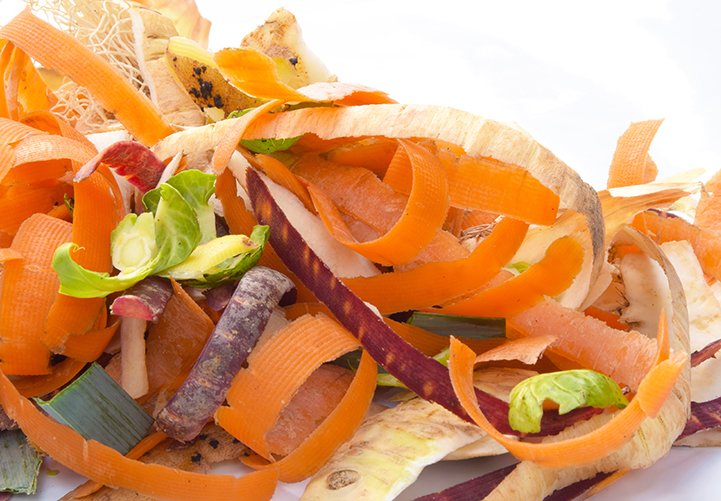
Mealworms
The mealworms are larvae of the flour beetle. Under ideal circumstances it takes 68 days for the mealworms to fully grow and be ready for harvesting. If allowed to continue growing the larvae will pupate and become beetles. After the eggs hatch, it takes them about 85 days to become flour beetles. The beetles are incapable of flight. This is the course of EntoBreed’s production cycle.
EntoBreed produces mealworms meant for processing into food for human consumption. Mealworms that do not suffice to the minimum quality requirements are sold as feed.
How they live
The mealworms live in large breeding containers, which are similar living condition to what their otherwise natural environment would be. For example, a dark grain silo. They are very mobile creatures, yet at the same time quite lazy. If no food is available in their direct surroundings, they will simply wait where they are until food is offered. During their lives they travel only a relatively short distance (centimetres), furthermore, they despise light.

What do they eat?
The mealworms live in large breeding containers in a bed of bran. They receive small pieces of carrot and other moisture-rich products multiple times a week.
The bran are residual products that are left over from the grounding of grain. The small carrot pieces fed to the mealworms are the trimmings left behind from the processing of carrots for, for example, salads. The other moisture-rich products are remnants from the sugar, fruit, and the potato industry.
Did you know that mealworms get their golden-brown colour from the carrots they eat?
Frass
With the harvesting of mealworms their manure is left behind. We call the manure frass. The frass contains more than just the defecation of the mealworms. In addition, it holds left over food and moults. The frass contains properties that are great for plants. Scientific research has shown that plants have been given frass instead of fertilizer are more resilient to insect pests. Another side effect is that pesticides are (almost) unnecessary fir these plants..
More information?
We have been busy with all the preparations of scaling the breeding process. We started our production April 2021. Would you like to know more about how we are breeding our mealworms, or do you have other questions? Feel free to contact us! You can also subscribe to our newsletter for even more information.